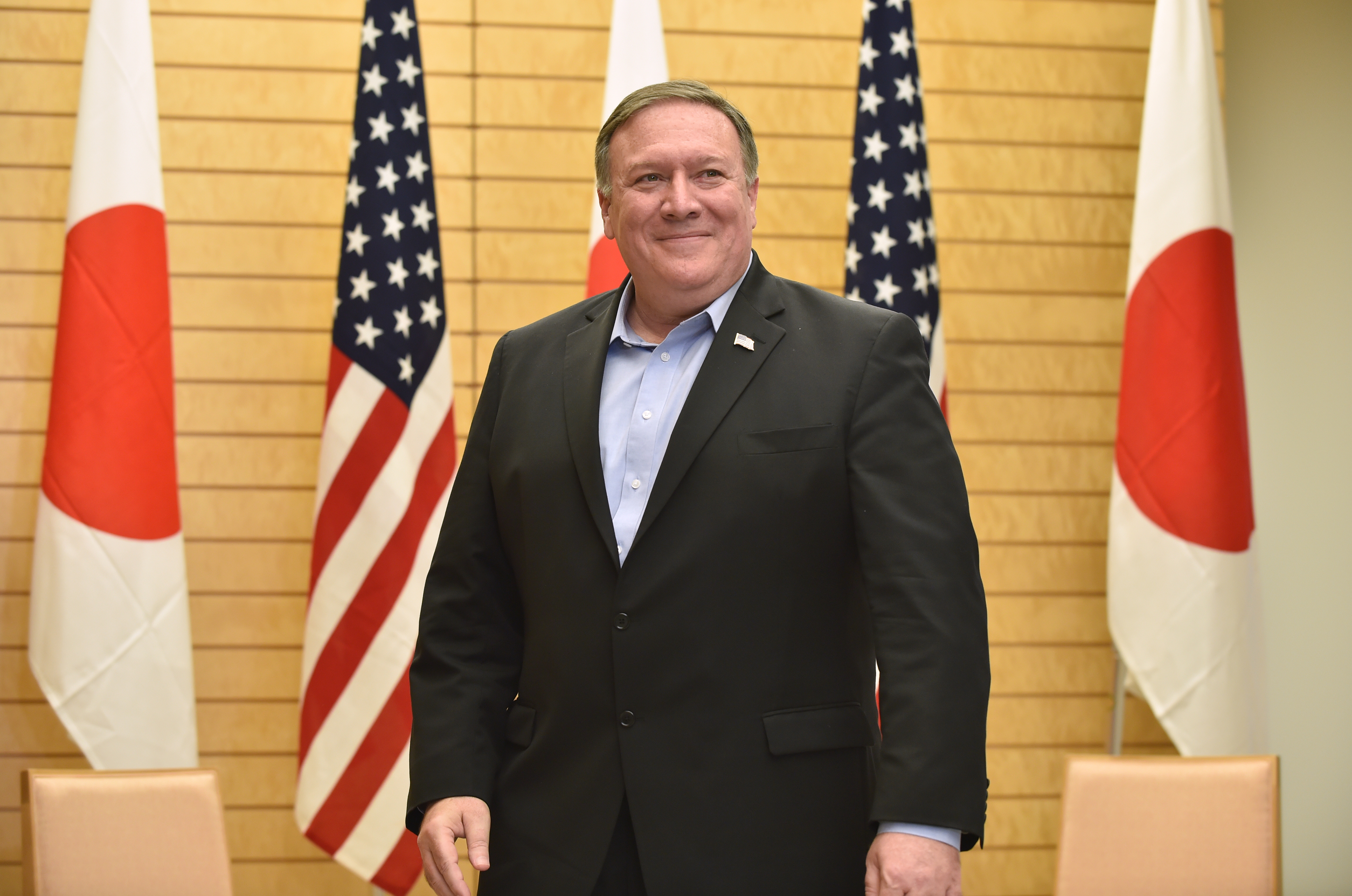Pompeo brushes off N.Korea ‘gangster’ tag, says sanctions to stay
Photo: () | ©AFP
Tokyo (AFP) – US Secretary of State Mike Pompeo on Sunday shrugged off North Korean accusations of “gangster-like” behaviour and said sanctions on Pyongyang would only be lifted with “final” denuclearisation.
Speaking in Tokyo after two days of intense discussions in Pyongyang, Pompeo insisted the talks were making progress and were being conducted in “good faith.”
In stark contrast, Pyongyang’s take was overwhelmingly negative, with the North warning that the future of the peace process was being jeopardised by overbearing US demands for its unilateral nuclear disarmament.
Speaking privately, US officials suggested the harshly-worded North Korean reaction was a negotiating tactic. But after two days of theatrical amity in Pyongyang it illustrated the gulf that remains between the two sides.
In Tokyo, Pompeo briefed his Japanese and South Korean counterparts on the talks, and sought to reassure them that the dialogue with North Korea would continue.
His trip to Pyongyang had been aimed at fleshing out denuclearisation commitments made during last month’s historic summit between President Donald Trump and North Korean leader Kim Jong Un.
North Korea has long trumpeted a denuclearisation goal, but one that it sees as a lengthy process of undefined multilateral disarmament on the entire Korean peninsula, rather than a unilateral dismantlement of its nuclear arsenal.
Speaking in Tokyo, Pompeo said his efforts to push the North on disarmament had the backing of the entire international community.
“If those requests were gangster-like, the world is a gangster, because there was a unanimous decision at the UN Security Council about what needs to be achieved,” he said.
While insisting again that the talks were moving forwards, he stressed that nothing had happened to merit a relaxation of the tough sanctions imposed on the North over its nuclear missile programme.
“Sanctions will remain in place until final, fully verified denuclearisation as agreed to by Chairman Kim (Jong Un) occurs,” Pompeo said, adding that the US would seek to smooth the path by providing security guarantees requested by Pyongyang.
– ‘No-one walked away’ –
In practical terms, Pompeo mentioned only that officials from both sides would meet on July 12 to discuss the repatriation of the remains of some US soldiers killed during the 1950-1953 Korean War.
North Korea’s angry reaction to the talks with Pompeo came in a Foreign Ministry statement that berated the Secretary over his “unilateral and gangster-like” demands and for offering no constructive steps on the US side.
“It seems the US misunderstood our goodwill and patience,” the statement said.
Pyongyang noted that it had already destroyed a nuclear test site — a concession that Trump has publicly hailed as a victory for peace — and lamented that Pompeo had proved unwilling to match this with US concessions.
It dismissed Trump’s unilateral order to suspend joint US and South Korean war games as a cosmetic and “highly reversible” measure and criticised US negotiators who “never mentioned” the subject of bringing the 1953 Korean War to a formal end with a peace treaty.
“We thought that the US side would come with a constructive proposal… But this expectation and hope of ours was so naive as to be gullible,” the statement said.
Professor Yang Moo-Jin at the University of North Korean Studies in Seoul said Pyongyang’s criticism was aimed at driving a wedge between Trump and his top officials.
“The North is trying to get an upper hand in further negotiations,” Yang said.
And Pompeo was adamant that those further negotiations would go ahead.
“We talked about what the North Koreans are continuing to do and how it’s the case that we can get our arms around achieving what Chairman Kim and President Trump both agreed to,” he said.
“No-one walked away from that.”
And he said some progress had been made towards agreeing “the modalities” of North Korea’s destruction of a missile facility.
Pompeo, who has now made three visits to Pyongyang, began the outreach when he was still Trump’s CIA director and remained the pointman on negotiations after the process became public and he became secretary of state.
Disclaimer: This story has not been edited by Siliconeer and is published from a syndicated feed. Siliconeer does not assume any liability for the above story. Validity of the above story is for 7 Days from original date of publishing. Content copyright AFP.


